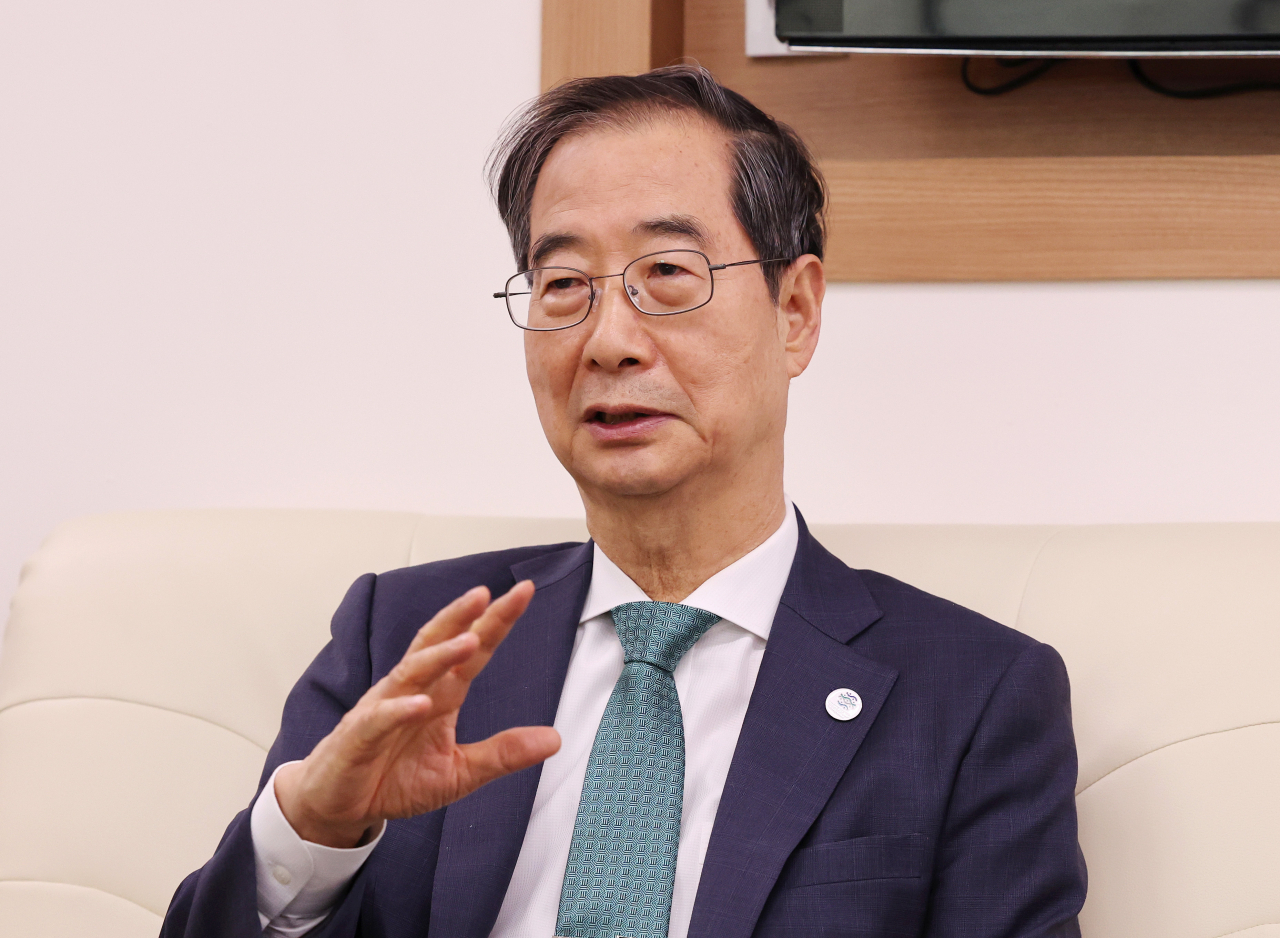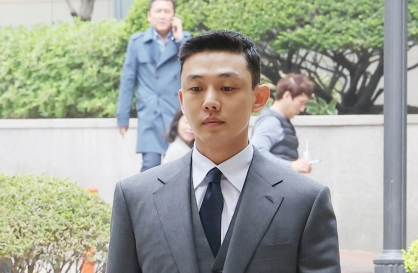PM rules out water sampling by Seoul's Fukushima inspection team
By Son Ji-hyoungPublished : May 17, 2023 - 15:24

SEJONG -- South Korean Prime Minister Han Duck-soo said Wednesday the inspection team will not take wastewater samples from earthquake-hit Fukushima Daiichi nuclear power station in Japan, amid political opponents' calls on the team to take more proactive actions including water sampling.
Sampling activities by an inspection team from a certain country could breach the independence of the International Atomic Energy Agency, Han told reporters in a briefing at the Government Complex Sejong.
Han said it is inappropriate to "cast a suspicious eye on what Japan is working on" to treat radioactive elements from the water stored in tanks there and "instantly conduct the sampling of the water," or place the IAEA on the sidelines as Seoul's solo inspection goes on.
He added that South Korea is already one of four along with the United States, France and Switzerland -- out of 11 IAEA task force participating countries -- that has obtained and worked to analyze samples of what Japan has long claimed has been treated before its long-sought discharge.
This reaffirms Seoul's stance announced the previous week that the inspection team's tasks will mainly revolve around the review of water treatment facilities in Japan, construction of which is to be complete in June.
The foreign affairs ministries of Seoul and Tokyo resumed talks Wednesday. Talks had been ongoing since Friday over what should be included on the inspection team's "checklist," said Bang Moon-kyu, minister of the Office for Government Policy Coordination, who was accompanied by Han at the briefing.
This came amid growing criticisms surrounding what political opponents view as Seoul's leniency regarding the upcoming wastewater facility inspection. On Tuesday, the main opposition Democratic Party of Korea called for the inspection team to do sampling on its own and analyze all 64 types of nuclides that could be found in the wastewater, from the current nine.
The inspection team composed of nuclear experts under state-run institutions will be on a four-day trip to Fukushima next week. Their detailed plan has yet to be announced.
Recalling his meeting with IAEA Director General Rafael Grossi earlier in May, Han said that he asked Grossi to reflect Seoul's view on its own assessment process and have a long-term perspective on the matter of wastewater discharge, given that it would take about a decade to fully release some 1.3 million metric tons of water.
Meanwhile on Wednesday, academic research by Kim Kyo-youn, former head of the Korean Association for Radiation Protection, found out that the released water from the Fukushima plant will have little impact on human health when the water reaches the Korean Peninsula, as long as Japan abides by the water discharge process that gained IAEA approval.
For example, the level of tritium -- one of the nuclides -- contained in Japan's contaminated water will be diluted to one-trillionth, he told a forum hosted by ruling People Power Party Rep. Kim Yeung-shik.








![[Hello India] Hyundai Motor vows to boost 'clean mobility' in India](http://res.heraldm.com/phpwas/restmb_idxmake.php?idx=644&simg=/content/image/2024/04/25/20240425050672_0.jpg&u=)










